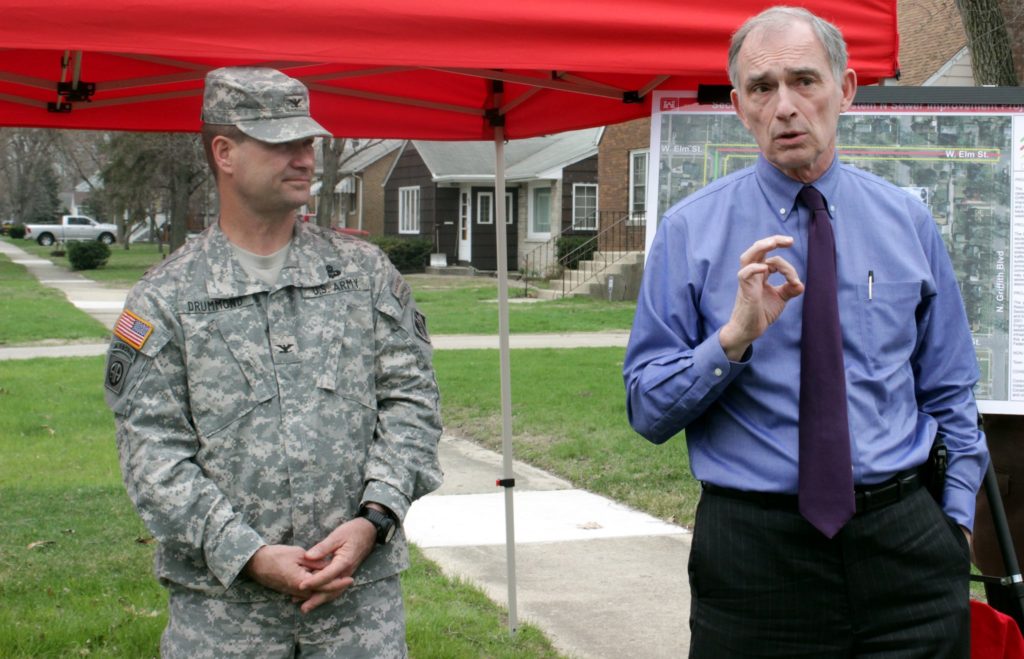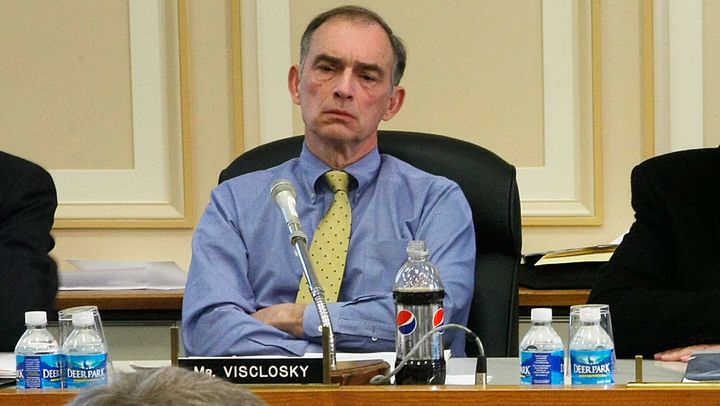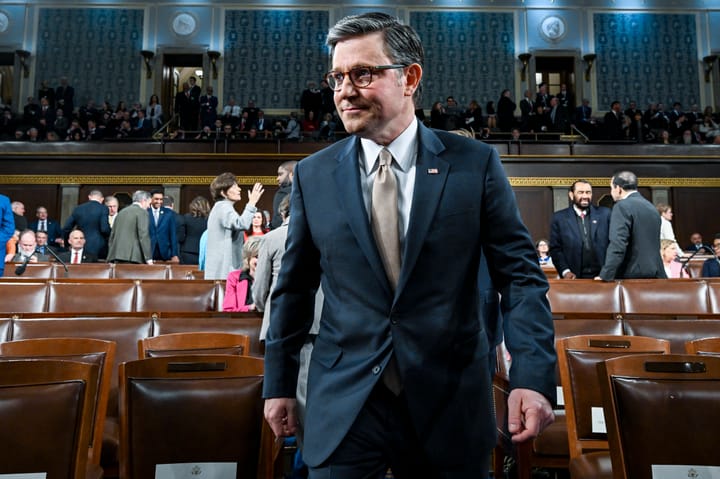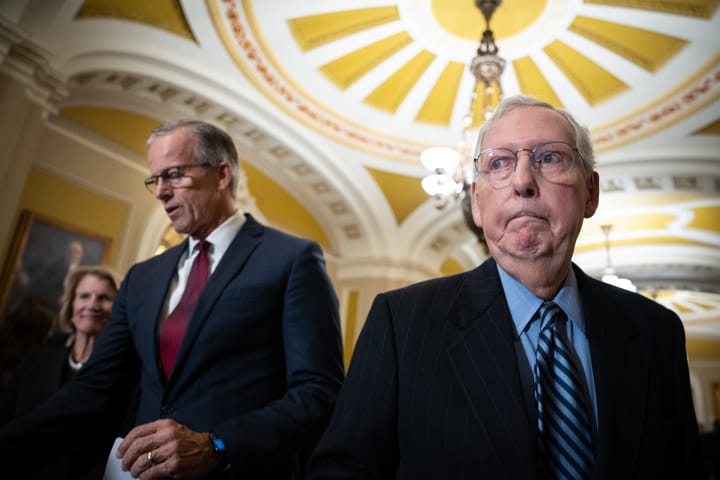Nearly all of the top Democrats in Congress have criticized the process and strategy behind President Trump’s strike that killed Iranian Gen. Qassim Suleimani, with Speaker Nancy Pelosi (D-Calif.) on Saturday slamming the initiation of hostilities without consultation of Congress.
House Foreign Affairs Committee Chairman Rep. Eliot Engel (D-N.Y.) put out a statement calling for a congressional briefing and said in a tweet, “We need to send a clear message to the White House: don’t plunge this country into an ill-conceived war against Iran.” House Armed Services Committee Chairman Rep. Adam Smith (D-Wash.) put out a statement expressing “grave concerns” and added on Twitter, “The American people don’t want war with Iran, but the administration is dragging us closer to another unnecessary war in the Middle East.”
But the third-longest serving Congressional Democrat—one with a powerful position overseeing military spending—has so far remained silent on President Trump’s military actions.
Rep. Pete Visclosky (D-Ind.) is the chairman of the Defense Subcommittee of the House Committee on Appropriations, which allocates funds for the military and contractors that work with and sell weapons to the Department of Defense. Visclosky has so far not issued a statement on Trump’s unauthorized assasination of Gen. Suleimani on his House website, on Twitter, or recently in the press. His House office also did not respond to Sludge’s request for comment on the matter.
Since 1989, Visclosky has received $1.7 million in campaign contributions from the defense industry, more than any other Democrat in Congress, according to the Center for Responsive Politics.
Several of Viscolsky’s top defense industry donors could profit from increased military sales if tensions with Iran escalate.
In the 2018 election cycle, Visclosky received $49,800 from the PAC and employees of defense contractor Lockheed Martin, the most campaign cash from the company received by any House Democrat. The day after President Trump’s missile strike in Iraq, Lockheed Martin’s stock jumped 4.3%. This week, Lockheed Martin announced a $1.9 billion deal with the Pentagon for the F-35 fighter fleet, a long-troubled program that at over $1 trillion total cost has been the most expensive weapons program ever.
Viscolsky counts several other leading defense contractors among his top career donors, according to the Center for Responsive Politics.
Visclosky announced in November 2019 that he would not seek reelection after this year, after 18 terms representing Indiana since 1984. The Hoosier State’s First Congressional District, located around the city of Gary and its suburbs, has been in Democratic hands without interruption since 1931.
An article after the 2018 midterm elections in the The Times of Northwest Indiana highlighted Rep. Visclosky’s seniority—before he announced his retirement—as he was set to “become the seventh longest-serving current House member out of 435 representatives, and will rank third in seniority among the Democratic majority — giving him a leading role in decisions concerning the policy direction of House Democrats.” A Defense News post last November on his surprise retirement described him as “low profile… considered a friend by the defense industry.”
One former Visclosky staffer, Thomas N. Quinn, who was legislative director from 2000-2006, went through the revolving door to join Van Scoyoc Associates. The Washington government affairs firm has lobbied for a number of defense aerospace and electronics clients, including seven last year. Van Scoyoc Assoc. reported $130,000 in lobbying through three quarters last year for Lockheed Martin, including on discussions related to the Department of Defense Appropriations Act, according to the Senate Office of Public Records. A 2018 report by The Project on Government Oversight, “Brass Parachutes,” detailed that many lobbyists for the top 20 defense contractors were former congressional staffers or legislative liaisons who had gone through the revolving door.
Rep. Visclosky currently has an 86% lifetime voting score from Peace Action, which describes itself as the nation’s largest grassroots peace network, using legislative data from 2014-2017. An earlier version of the network’s scorecard, using votes from 2011 to 2016, graded Rep. Visclosky with a 67% lifetime score. In 2017, Peace Action downgraded Visclosky for voting “nay” on the progressive “People’s Budget” and “nay” on a National Defense Authorization Act amendment to reduce the base Defense Department budget by 1% (excluding military personnel).

Peace Action dinged Visclosky for hawkish votes related to Iran. In 2011, he voted for Rep. Ileana Ros-Lehtinen’s (R-Fla.) bill to expand sanctions and ban diplomatic contact with Iran. Then, in 2012, he voted against an amendment from Rep. Barbara Lee (D-Calif.) that would have lifted the diplomatic contact ban and established a special envoy to lead negotiations with the country. Lee’s amendment also would have banned the use of military force against Iran without congressional authorization.
In May 2018, Rep. Visclosky put out a statement condemning the Trump Administration’s withdrawal from the Iran nuclear agreement.
The Defense Subcommittee Democratic members with the next most received from the defense industry are Rep. Dutch Ruppersberger (D-Md.), a nine-term incumbent, with $1,278,645, followed by Rep. Marcy Kaptur (D-Ohio), a 19-term incumbent, with $528,352. Visclosky’s career total from the defense industry puts him second only behind the House Appropriations Committee’s 12-term ranking member, Republican Rep. Kay Granger of Texas, with $1,825,463.
At least five candidates are running in the Democratic primary to replace Visclosky in Indiana’s First Congressional District, according to Ballotpedia. One candidate, Valparaiso attorney Jim Harper, spoke out against President Trump’s strike on Twitter, while Hammond Mayor Thomas McDermott Jr. and State Representative Mara Candelaria Reardon have not yet tweeted about the Iran actions.



